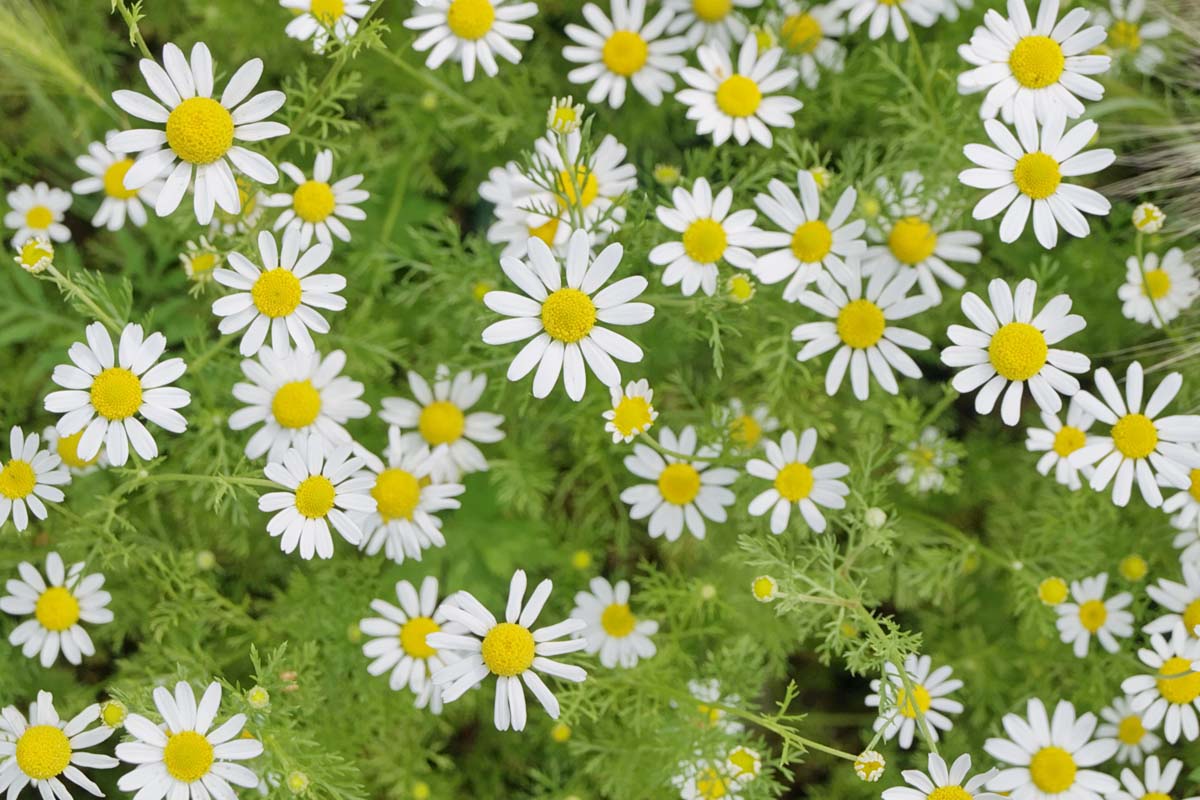
Chamomile has been cherished for centuries, but what makes this humble flower so special? Chamomile is not just a pretty bloom; it's a powerhouse of benefits. From soothing teas to calming skin treatments, this versatile herb has a lot to offer. Did you know that chamomile can help with sleep, digestion, and even anxiety? Its anti-inflammatory properties make it a go-to for many health remedies. Whether you're sipping on a warm cup of chamomile tea or using it in your skincare routine, this flower is a natural wonder. Ready to learn more? Here are 20 fascinating facts about chamomile that will make you appreciate this little flower even more.
Key Takeaways:
- Chamomile, a versatile herb with calming properties, has a rich history and offers numerous health benefits, from reducing inflammation to promoting relaxation and improving skin health.
- With varieties like German, Roman, and Moroccan chamomile, this daisy family member is not only beneficial but also fun, with an apple-like scent and a role in skincare and natural remedies.
What is Chamomile?
Chamomile is a popular herb known for its calming properties. It has been used for centuries in traditional medicine and is a common ingredient in teas, skincare products, and more. Let's dive into some fascinating facts about this versatile plant.
Historical Significance of Chamomile
Chamomile has a rich history that spans various cultures and centuries. Here are some intriguing historical facts about chamomile:
- Ancient Egyptians revered chamomile and dedicated it to their gods due to its healing properties.
- The Greeks and Romans used chamomile to treat ailments like headaches and digestive issues.
- In the Middle Ages, chamomile was a key ingredient in herbal remedies and was often used to ward off diseases.
Chamomile in Modern Medicine
Chamomile continues to be a staple in modern herbal medicine. Here are some ways it is used today:
- Chamomile tea is widely consumed for its soothing effects on the digestive system.
- Chamomile extract is a common ingredient in natural sleep aids.
- Topical chamomile is used to treat skin conditions like eczema and dermatitis.
Chamomile Varieties
There are several types of chamomile, each with unique characteristics. Let's explore some of them:
- German chamomile (Matricaria chamomilla) is the most commonly used variety in teas and herbal remedies.
- Roman chamomile (Chamaemelum nobile) is often used in essential oils and aromatherapy.
- Moroccan chamomile (Ormenis multicaulis) is known for its distinctive blue oil, which is used in skincare products.
Health Benefits of Chamomile
Chamomile offers numerous health benefits, making it a popular choice for natural remedies. Here are some of its key benefits:
- Chamomile has anti-inflammatory properties that can help reduce swelling and pain.
- It contains antioxidants that protect cells from damage caused by free radicals.
- Chamomile can help alleviate menstrual cramps and other symptoms of PMS.
- Drinking chamomile tea can improve sleep quality and reduce insomnia.
- Chamomile has been shown to reduce anxiety and promote relaxation.
Chamomile in Skincare
Chamomile is a popular ingredient in many skincare products due to its soothing properties. Here are some ways it benefits the skin:
- Chamomile can help reduce redness and irritation caused by acne.
- It has antimicrobial properties that can help prevent infections.
- Chamomile can soothe sunburns and promote healing of damaged skin.
- It is often used in anti-aging products due to its ability to improve skin elasticity.
Fun Facts About Chamomile
Chamomile is not just beneficial; it also has some fun and interesting aspects. Here are a few:
Chamomile's Lasting Impact
Chamomile isn't just a pretty flower. Its healing properties have been cherished for centuries. From soothing upset stomachs to helping with sleep, this humble plant packs a punch. People use it in teas, oils, and even skincare products. Its anti-inflammatory and antioxidant benefits make it a go-to for many health issues. Plus, it's easy to grow in your garden. Just a few seeds and some sunlight, and you'll have your own supply. Chamomile's versatility and effectiveness make it a staple in natural remedies. Whether you're sipping a warm cup of chamomile tea or applying chamomile-infused lotion, you're tapping into a rich history of natural healing. So next time you see those tiny white flowers, remember their big impact on health and wellness. Chamomile truly stands the test of time.
Frequently Asked Questions
Was this page helpful?
Our commitment to delivering trustworthy and engaging content is at the heart of what we do. Each fact on our site is contributed by real users like you, bringing a wealth of diverse insights and information. To ensure the highest standards of accuracy and reliability, our dedicated editors meticulously review each submission. This process guarantees that the facts we share are not only fascinating but also credible. Trust in our commitment to quality and authenticity as you explore and learn with us.


